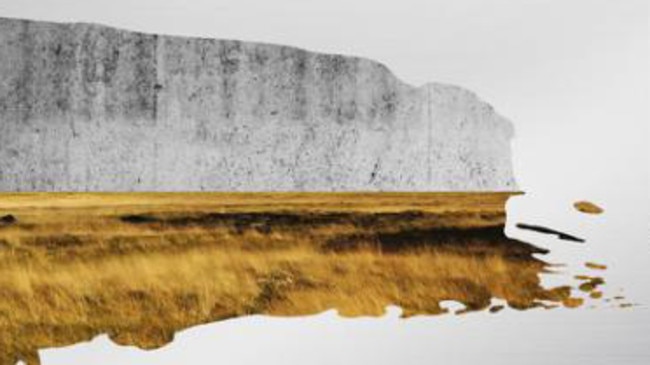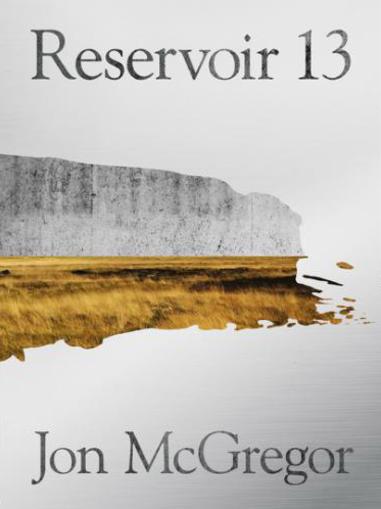Jon McGregor’s Reservoir 13 an eerie yet tender novel
In Jon McGregor’s striking new novel human nature and the natural world exist on the same plane.

The past decade has seen a surge in books about the quotidian. From Ben Lerner’s smart expansions of time in 10:04 to Karl Ove Knausgaard’s obsessively recalled biographical novels and Claire-Louise Bennett’s Pond, immersive prose-poetry-in-place, a significant strand of contemporary fiction has been devoting itself to catching reality in its minute unfolding.
Such books find their parallel in recent “slow cinema”: films such as Le Quattro Volte, which takes us beyond human hours into the cycles of the Earth. Meanwhile, nature writing, with its slow habits across seasons, has been infiltrating the other genres, such as travel writing and even biography. Recently I met a writer working on an “eco-biography”, which told the story of her human subject in the context of local ecosystems.

It’s no coincidence nature often looms large in what we now think of broadly as slow art. These are far from the old modernist experiments in time, bent on capturing the exciting new technologies the 20th century had to offer. Instead, this burrowing into the present is often an act of resistance. A studied rebuke to the glossy, non-echoic vaults of virtual reality, this close focus on the present, especially the natural, insists on keeping alive a threatened “real”.
Reservoir 13, the new novel by young British writer Jon McGregor, is surely one of the more curious products of this moment. Set in a rural British village somewhere near Manchester, the novel begins with the disappearance of 13-year-old Rebecca Shaw, who has been staying with her parents in a let-out barn conversion.
The reservoir of the title is one of 13 that brood above the hamlet. Becky may have fallen into one, or into a boggy ravine, or met with foul play. A community search, police reconstructions and media circus fail to bring her fate to light. As the days, then years, pass, the village begins to return to its old relationships and habits, albeit with an eerie sense of the unresolved. Children grow up and leave and wonder if they should have said everything about the last hours they spent with Becky; the well outside the church is dressed; the poachers keep poaching; dogs are walked.
Some strange old characters seem more sinister than before, such as school groundsman Joe. The girl’s mother eventually leaves; her father is seen compulsively walking the landscape. Businesses start and fail. Romances and friendships wax and wane.
McGregor relates all these incremental changes in a glassy prose, its surface barely rippled by a comma. It is as if we are hovering over the scene, watching through an observation camera. This is creepy enough, but what is most striking — and original — about the novel is its use of nature. Within long prose blocks, snatches of human action and conversation segue seamlessly into observations of nature.
A woman winds her twin babies’ mobiles. In the next sentence badgers in the beech wood feed quickly, “laying down fat for the winter ahead … Their coats were thickening. The river turned over beneath the packhorse bridge and ran on towards the millpond weir.” For the entire length of this eerie yet tender novel, human nature and the natural world exist on the same plane, take place in the same breath.
McGregor has form in terms of unusual narrative directions. Among his four earlier books, Even the Dogs is narrated by a dead man; If Nobody Speaks of Remarkable Things (longlisted for the 2002 Man Booker Prize) dips into the consciousness of residents of the same street.
Yet Reservoir 13 feels like part of a bigger movement. Robert Macfarlane and James Bradley have noted a strong strain in recent British writing, music and art, of presenting the English countryside as deeply haunted. Macfarlane and Bradley read this fascination with “the English eerie” as a symptom of the vast assault on nature in Britain over the turn of the century.
Nature has been so ravaged — by motorways, by industrial agriculture — that it is now a dead thing, reduced to the skull beneath its skin. Perhaps this urge to find a form commensurate to a violence or damage deep within the land itself was part of McGregor’s intention. Certainly there are hints the place is already disturbed by the dams that have flooded old villages, its quarries, and plans for more.
There is even a sense in McGregor’s strange flattening of form and stretching out of time that the novel itself, with its roots in the familiar passage of time, is itself an endangered species.
Certainly, I’ve not read a novel such as McGregor’s before. The closest antecedent I can think of is Jim Crace’s Being Dead (1999), which lovingly details the decomposition of a murdered couple on a British beach. But while Crace’s novel was a kind of robust secular ritual for the dead, one comes away from Reservoir 13 with less (dark) comfort. Its insistence on the slow-motion unfurling of the natural world, and on the long-practised gestures of British rural life, begins to feel perverse, even unnatural.
Rebecca may or may not be dead; meanwhile the rivers fatten, mating bats feed heavily to build up fat for winter, the hawthorn in the lower meadows blooms a foaming white. Reservoir 13 leaves the reader feeling mesmerised, disconcerted and with senses oddly heightened, as if something had walked over their own grave.
Delia Falconer is a writer and critic.
Reservoir 13
By Jon McGregor
Fourth Estate, 325pp, $29.99


